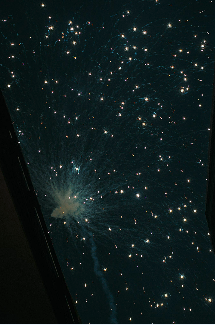Introduction
It’s common to hear a lot of details about multiverse, parallel, or alternate universes in science fiction (Sci-Fi) stories, but what if it is true? Alternate reality is one of the most exciting and intriguing topics to theorize about. Theoretical physics is trying to confirm that there’s a possibility that our reality isn't the only one version of events. Theoretical physicists like Michio Kaku say that his calculations say there may be other universes than the one we live in, maybe there are different versions of ourselves,
different histories, and different outcomes. Isn’t this fascinating? Let's explore it.

Parallel Universe Sep 9th
Listen and follow:
Read the complete topic:
It’s common to hear a lot of details about multiverse, parallel, or alternate universes in science fiction (Sci-Fi) stories, but what if it is true? Alternate reality is one of the most exciting and intriguing topics to theorize about. Theoretical physics is trying to confirm that there’s a possibility that our reality isn't the only one version of events. Theoretical physicists like Michio Kaku say that his calculations say there may be other universes than the one we live in, maybe there are different versions of ourselves,
different histories, and different outcomes. Isn’t this fascinating? Let's explore it.
Scientists used to believe that there was just one universe that encompassed everything known to humanity, including Earth, stars, planets, and galaxies, until Hugh Everett, a famous physicist, came
up with the first theory of multiverses in 1954. He believed that the universe splits constantly and that each split became its own universe. This is known as the Many Worlds Interpretation (MWI).
You can think of it as a flowchart that continues branching off in different directions. For example, you have to choose what college course you will take, Engineering vs. Medical. So, you chose Engineering, but what if you chose Medical? You will probably be on a different path now. Different
decisions have different outcomes, so maybe in another universe you chose the medical field and you’re living a totally different life.
String Theory assumes that these universes are like bubbles, completely invisible to one another and we won’t be able to get in contact with them because we don’t have the technology for that yet. Those worlds are completely independent and unable to collide, you'd never realize there are many versions of you leading lives that are slightly or drastically different from your life in this reality.
Some researchers used quantum physics, the mathematical description of subatomic particles to explain parallel universes. Multiple states of existence for microscopic particles are all possible at the same time in quantum mechanics, and a "wave function" captures them all.
Science fiction is a type of speculative fiction that deals with innovative and futuristic ideas such as advanced science and technology, space exploration, time travel, parallel universes, and extraterrestrial life. The concept of a multiverse is becoming increasingly popular in films. These are some of the movies or films with appearances of multiverses: Another Earth, Comet, Coherence, Parallel, The Marvel Cinematic Universe, and so on.
Now, one thing is for sure, nobody can tell how big our universe is, some say it could be infinite. We haven’t fully explored our own universe because there is a limit on how far we can see. The region of space that we can see and observe so far is called the observable universe. Moreover, space is
constantly expanding and other galaxies are moving away from our galaxy.
